#Cao Yan Bing
Explore tagged Tumblr posts
Text
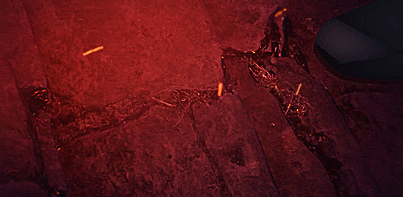



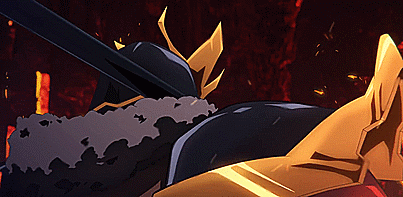




Rakshasa Street - EP 311 - Old Friends on Different Paths
5 notes
·
View notes
Text




Cdrama: Hero is Back (2024)
So romantic~ 😍 | YOUKU COSTUME #镇魂街之热血再燃 #heroisback #敖瑞鹏 #张予曦 #金珈 #陈紫函 #刘美彤 #shorts #youku
Watch this video on Youtube: https://www.youtube.com/shorts/gJsKTh3acLo
#Hero Is Back#镇魂街之热血再燃#Rekindling the Blood on Soul Street#Zhen Hun Jie Zhi Re Xue Zai Ran#鎮魂街之熱血再燃#2024#chinese drama#cdrama#youtube#Youku#shorts#short video#Ao Rui Peng#Cao Yan Bing#Zhang Yu Xi#Xia Ling#Li Jun Yi#Li Xuan Yan
1 note
·
View note
Photo
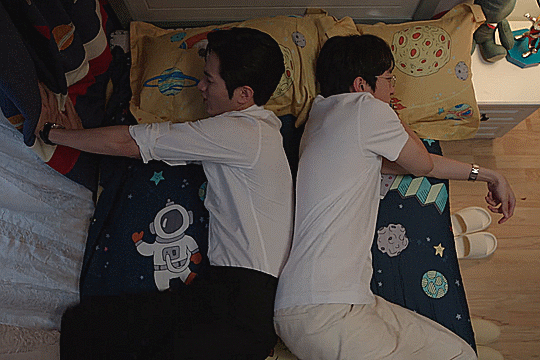

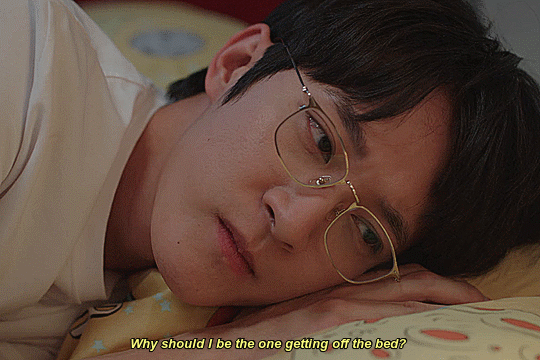
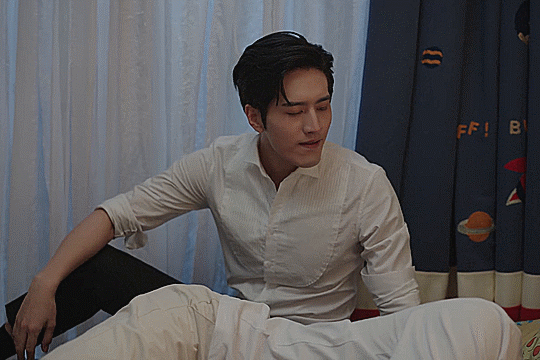
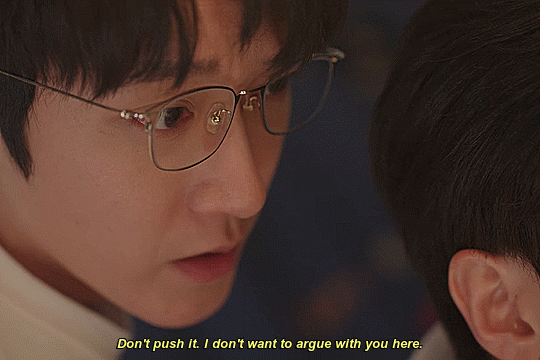

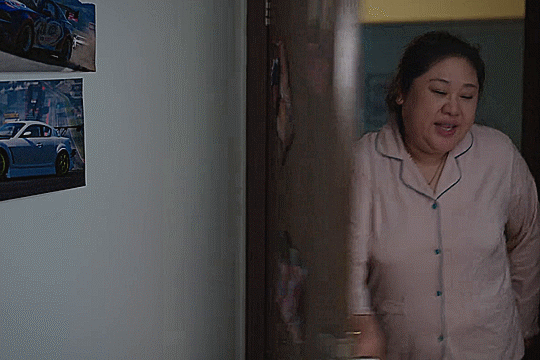

心跳 | Skip a Beat E5 ° Don’t touch me. Get lost!
#心跳#Skip a Beat#cdrama#Luo Zheng#Cao Enqi#character: gu yi#character: bai yan#the first four eps srs wtf#i almost dropped it#funny i see ceq here bc i've been binge watching great escape master ver lately#(and thts why i'm behind on ning-ge's stream)#meowmao gifs
3 notes
·
View notes
Text
Lotus Lantern (2005) 宝莲灯
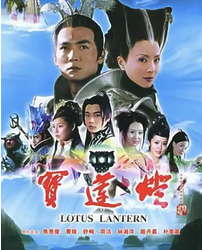
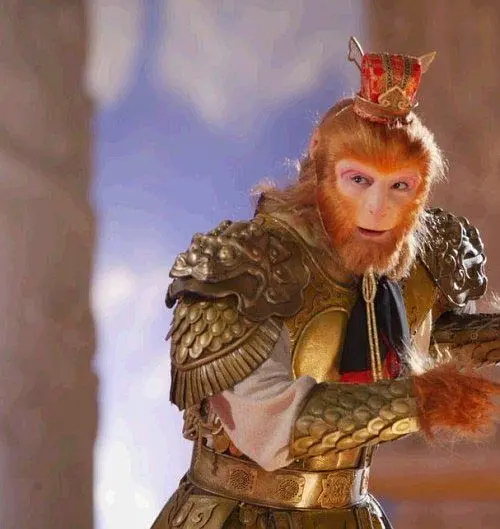
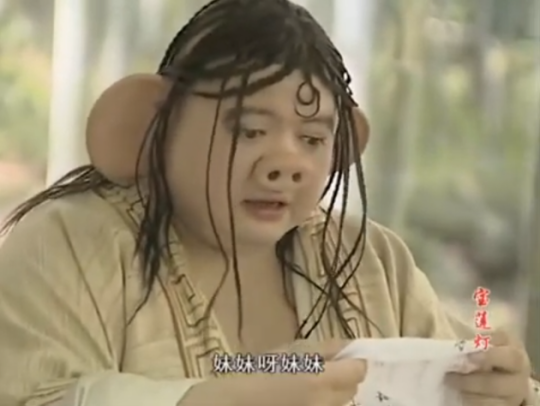
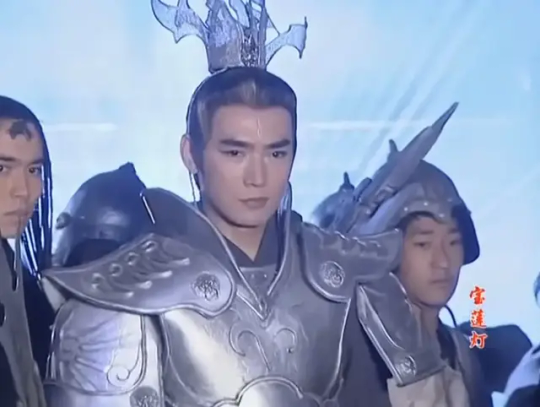
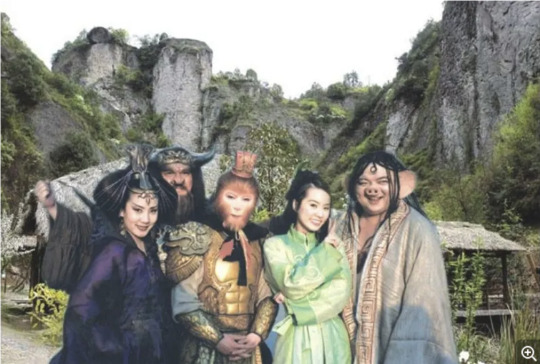
Director: Yu Mingsheng Screenwriter: Nine years Starring: Jun Cao / Shu Chang / Enjun / Jiao / Lin Xiangping Yuqiao / Liu Liu Liu Xiaoqing / Yan Danchen / Xie Ning / Wang Weiguo / Chen Chuang / Ding Jian / Xiaofeng Luo Wei / Pu Shiyan Zhang Zhichao / Tian Erxi / Wu Zhou Jie / Guohua You Benchang / Wang Yonggui / Li Baocheng Zhao / Shujun / Li Jianxun Zhu Yaying / Li Liu Jie / Jiayi Ye Yina / Ma Liqing / Yang Si / Wang Wensheng / Ma Jielin / Tian Xuemin / Zhao Qi / Zong Fengyan / Wan Luo Guangyue / Li Dou / Ying / Tang Nien / Liu Shuxing / Shi Liang / Cheng Sudong / Lu Bing / Wang Xiang / Yao Changjiang / Xi Xianfeng / Yuan Han / Shen Jie / Deng Jia / Guo Ye / Wang Jiayu / DuduMore Genre: Drama / Fantasy / Costume Country/Region of Production: Mainland China Language: Mandarin Chinese Date: 2005-10-04 (Mainland China) Number of episodes: 35 Single episode length: 46 minutes Also known as: New Lotus Lantern / 新宝莲灯 IMDb: tt4776994 Type: Reimagining
Summary:
Chen Xiang (played by Cao Jun), a young man in a small town, and his father Liu Yanchang (played by Liu Xiaofeng) have been living a peaceful life until one day, Chen Xiang accidentally discovers that he actually contains "magic power" in his body and could pass through walls effortlessly. After his father learned about it, he told Chen Xiang the fact that he had hidden for many years, that is, Chen Xiang's mother was actually the San Sheng Mu (played by Park Meixuan) in heaven. Because she violated the rules of heaven and married herself as a mortal, she was captured by heaven to an unknown destination. Chen Xiang was shocked to learn the truth and decided to overcome all difficulties to rescue his mother. Er Lang Shen (Jiao Enjun), who sees everything in his eyes, is Chen Xiang's uncle and decides to stop Chen Xiang's journey to save his mother. Thus, this difficult trip to save the mother kicked off with the interference of Erlang Shen. During the journey, Chen Xiang met many kind-hearted people and spirits, encountered various resistances, and even wanted to give up. But in the end, it was no match for his determination to save his mother...
Source: https://tv-1.chinesemov.com/tv/2005/Lotus%20Lantern
Link: https://youtube.com/playlist?list=PL10scWhSJdfGojWzhbiYNBCM9KgZi1sk_
#Lotus Lantern#宝莲灯#New Lotus Lantern#新宝莲灯#jttw media#jtte television#television#live action#reimaging#reimagining#continuation#Erlang Shen#Yang Jian#Little Fox#Fox Demon#Chen Xiang#Eighth Dragon Prince of the East Sea#Liu Yanchang#Yang Chan#San Shengmu#Chang'e#Zhu Bajie#Sun Wukong#Bull Demon King#Nezha#Guanyin#Princess Iron Fan#Red Boy#Li Jing#Pagoda-Bearing Heavenly King
9 notes
·
View notes
Note
Ji ji fu ji ji
a o e i i er ai ei ao ou an en ang eng ong i ia iao ie iu ian in iang ing iong u ua uo uai ui uan un uang ueng ü üe üan ün a o e er ai ao ou an en ang eng yi ya yao ye you yan yin yang ying yong wu wa wo wai wei wan wen wang weng yu yue yuan yun b ba bo bai bei bao ban ben bang beng bi biao bie bian bin bing bu p pa po pai pei pao pou pan pen pang peng pi piao pie pian pin ping pu m ma mo me mai mei mao mou man men mang meng mi miao mie miu mian min ming mu f fa fo fei fou fan fen fang feng fu d da de dai dei dao dou dan den dang deng dong di diao die diu dian ding du duo dui duan dun t ta te tai tei tao tou tan tang teng tong ti tiao tie tian ting tu tuo tui tuan tun n na ne nai nei nao nou nan nen nang neng nong ni niao nie niu nian nin niang ning nu nuo nuan nü nüe l la le lai lei lao lou lan lang leng long li lia liao lie liu lian lin liang ling lu luo luan lun lü lüe g ga ge gai gei gao gou gan gen gang geng gong gu gua guo guai gui guan gun guang k ka ke kai kei kao kou kan ken kang keng kong ku kua kuo kuai kui kuan kun kuang h ha he hai hei hao hou han hen hang heng hong hu hua huo huai hui huan hun huang z za ze zi zai zei zao zou zan zen zang zeng zong zu zuo zui zuan zun c ca ce ci cai cao cou can cen cang ceng cong cu cuo cui cuan cun s sa se si sai sao sou san sen sang seng song su suo sui suan sun zh zha zhe zhi zhai zhei zhao zhou zhan zhen zhang zheng zhong zhu zhua zhuo zhuai zhui zhuan zhun zhuang ch cha che chi chai chao chou chan chen chang cheng chong chu chua chuo chuai chui chuan chun chuang sh sha she shi shai shei shao shou shan shen shang sheng shu shua shuo shuai shui shuan shun shuang r re ri rao rou ran ren rang reng rong ru rua ruo rui ruan run j ji jia jiao jie jiu jian jin jiang jing jiong ju jue juan jun q qi qia qiao qie qiu qian qin qiang qing qiong qu que quan qun x xi xia xiao xie xiu xian xin xiang xing xiong xu xue xuan xun
13 notes
·
View notes
Text
Records of Jiankang (280 - 311)
The Jiankang Shilu by Xu Song (c. 760) is a history covering the six dynasties that located their capitals at Jianye/Jiankang: Wu, (Eastern) Jin, Song, Qi, Liang, and Chen. It is written in the annalistic style with a main chronology interspersed with short biographic sketches (sometimes these are not so short).
I've skipped past Wu for now, to the earliest origins of Eastern Jin.
Xiaowu [sic] of Western Jin's 1st Year of Taikang [280 AD], he pacified Wu, and therefore abolished Jianye建業, restoring it to be Moling. He divided off Danyang's southern commandery to be Xuancheng commandery, and returned the management to Moling, locating it 6 li south-east of the county. The crossing [?] at Changle Bridge is the ancient Danyang commandery. He used Zhou Jun as Inspector of Yang province, and under his command were 19 commanderies and 70 counties.
3rd Year of Taikang [282 AD], he divided off north of the Qinhuan River to be Jianye建鄴, south of the river became Moling county, still located on the land of the Qin town [?]. However Jianye建鄴 county is within the former capital city's Xuanyang Gate, 2 li east of the present county city, east of ancient Carriage Street.
[Emperor Hui's] 2nd Year of Tai'an, Summer, 5th Month [2 June 303 – 30 June 303], Zhang Chang, a Man of Yiyang, raised troops, titled [himself] Han, and declared it the 1st Year of Shenfeng. He sent General Shi Bing to rob Yang province, the various commanderies were fully lost. Bing following that repaired the palace of Jianye and lived there.
Note: Cao Xian's Annals of Yang province: Hui of Jin's 2nd Year of Yongning [302 AD], there was a stone [shi石] which came floating to Jianye. It entered from the Qinhuai's Xiajia Lake, and climbed the banks for more than 200 paces. Among the hundred families everyone said: “A stone comes, a stone comes. Arriving at the next year, Shi Bing as a result entered Yang province, and thereupon occupied its lands.
Winter, 12th Month [25 December 303 – 23 January 304], the General who Conquers the East, Liu Zhun, sent the General of the Right and Chancellor of Guangling, Chen Min, to cross the Jiang. He attacked and routed Shi Bing at Jianye.
2nd Year of Yongxing, 12th Month [1 January 306 – 30 January 306], Chen Min also occupied Jianye, titling himself Inspector of Yang province. He made use of Gu Rong as Intendant of Danyang, and used Gan Zhuo and Zhou Qi as Generals. Min suggested his functionaries and aides to advance him to be Duke of Chu, and added the rites of the Nine Bestowals.
At the time the Libationer to the King of Donghai, Hua Tan, heard about it. He sent a letter to Rong about Chen's rights and wrongs, telling him:
Min is a common talent without far-reaching schemes. Formerly Qi's Wang Zhu was [a commoner in] cloth clothes, still he did not bend to Yan. How much more so, Sir, when fame is heavy and rank is evident, to accept kindness from the state and yet make faction with faithless dissenters, setting each other up in official posts?
Rong received the letter and was greatly ashamed. He planned with Gan Zhuo and others, saying:
If the affairs of Jiangdong are to be achieved, [we] must complete them together. However, when observing the shape and conditions, what are they like? Min is wholly an ordinary talent, his government orders are contradictory, his sons and brothers are proud and aloof, his defeat is certain! We accepted his offices and salaries. On the day of his affairs' defeat, when they send the various armies from west of the Jiang to pack up the heads to be sent off to Luoyang, the label will say “Heads of the disobedient traitors Gu Rong and Gan Zhuo”. Is it only one person whose shame will reach ten thousand generations!
Zhuo and others considered it so. Thereupon they and Rong made plans. They dispatched messengers to secretly report to the General who Conquers the East, Liu Zhun, to cause him to lead soldiers and approach the Jiang. Min ordered his younger brother Chang to command troops and resist him, and he sent Gan Zhuo to station at Hengjiang. Gu and Qi took the opportunity of Zhuo's troops to kill Chen Chang, cut the bridge, and fully gathered the ships to the south of the Huai River. Min set out himself with the army to approach the shore of the great pontoon [?]. Rong used a feather fan to signal them, and Min's multitudes scattered and dispersed. Min fled north on a single horse, Qi and others pursued and beheaded him in Jiangbiao [lit. “the layer outside the Jiang”, i.e. the south].
Chen Min, courtesy name Lingtong, was a native of Lujiang. AS young he was able and competent, and was appointed Foreman Clerk of the Granary Section to the Masters of Writing. When the King of Zhao, Lun, usurped in rebellion, the righteous troops lacked food. They used Min as Supply Controller of Guangling to make use of water transport on the Jiang and Huai to aid the Central Provinces. During the chaos of Zhang Chang, he sent Shi Bing to hasten towards Shouchun. The Commander-in-Chief, Liu Zhun, made plans with Min to rout Bing and others, and due to his merits he was designated Chancellor of Guangling. At the time Emperor Hui moved west and the Four Regions were altogether fought over. Min thereupon had a desire for occupying Jiangdong.
Emperor Huai's 1st Year of Yongjia [307 AD], the King of Donghai, Yue, held the government.
Autumn, 7th Month [15 August – 13 September 307], he used the King of Langye, Rui, as General who Calms the East, Commander-in-Chief of the Various Army Affairs of Yang Province South of the Jiang. He employed Wang Dao's strategy, and crossed the Jiang to garrison Jianye. He chastised Chen Min's remaining partisans and cleaned up Jiangbiao. He relied on Wu's old capital city, repaired it and then lived there. The Taichu Palace became his office building.
Note: The Taichu Palace was originally the palace of Wu. Jin pacified Wu, and then afterwards when Shi Bing made chaos, it burnt down and was swept away entirely. Chen Min pacified Shi Bing and occupied Yang province. He relied on Taichu's old foundations to start constructing office buildings. When Zhongzong first crossed the Jiang, he because of that lived on this land.
He set up the office of Interior Clerk of Danyang, and used Gu Rong as Army Marshal and He Xun as Assistant Aide. Wang Dun, Wang Dao, Zhou Yi, Diao Xie, and Dai Rousi became his belly and heart, thighs and forearms. He connected with guests and visitors, was courteous to famous worthies, and inquired into and asked about manners and customs.
5th Year of Yongjia, Summer, 6th Month [3 July – 31 July 311], Liu Yao robbed Luoyang, the Imperial Capital was lost, and Emperor Huai suffered dust at Pingyang. The Minister of Works, Xun Fan, circulated a document under Heaven, pushing forward the King of Langye as master of the alliance.
7 notes
·
View notes
Text
dramas you should watch
hikaru no go - 36 ep
summary: while looting his grandfather's attic, Shi Guang discovers and Go board manifesting the spirit of Chu Ying, an ancient Go master. together, they enter the world of Go with a newfound passion, encountering many lessons and friendships
nirvana in fire - 54 ep/ 1 seaon
summary: in sixth-century china, the emperor of Great Liang orders the unjust execution of his brother-in-law Marshal Lin Xie alongside the Lin family, his 70,000 army soldiers, and Crown Prince Qi. secretly surviving the massacre is Lin Xie's son, Lin Shu, who undergoes medical treatment that changes his appearance entirely and leaves his in a weakened state, unable to ever perform martial arts again. Lin Shu changed his name to Mei Chang Su and later became the chief of the pugilist world and established the Jiangzou Alliance. twelve years later, Mei Chang Su returns to the capital with a secret plan after being sought after by Prince Yu and Prince Xian during their fight for the throne. he decides to covertly assist Prince Jing, the unfavoured son of the emperor, and wisely rids the court of all scheming officials
rakshasa street - 24 ep
summary: Xia Ling, is a senior college student and looking for jobs. after a freak accident where she is the only survivor, she continues to live her life, however when many misfortunate events start occurring she realizes she is now cursed. she is then told that there is only one way to protect her life. she wounds up seeking a street called Rakshasa, she rushes out. from this point on its too late to turn back and she has crossed into a transitional dimension, the bridge between the human realm and hell, where spirits are kept until they are sanctioned. there are many streets like this and each street has a guardian general, guarding the place. at Rakshasa Street, its the turf of two brothers - Cao Yan Bing ( older) and Cao Xuan Ling, presumably are descendants of Cao Cao. in this world full of evil spirits, can you cooperate with your guardian spirit in order to survive?
connect - 6 ep
summary: a work that depicts the mysterious story of a man who has been deprived of a part of his body by organ hunters and becomes 'connected' with a person who has received an organ transplant. Ha Dong Soo is part of a new human race called connect, who has an immortal body, kidnapped by a group of human organ traffickers. his eye is cut out from him. he soon sees something and realizes the man who has his stolen eye is a serial killer. Ha Dong Soo is now able to see what the serial killer sees. he chases after the serial killer to stop him from killing more people
no gain, no love - 12 ep
summary: Son Hae Yeong is the type of person who doesnt want to lose money under any circumstance. while growing up, she had to share her mothers love with others. she often found her partners in relationships below her break-even point. now, Hae Yeong faces the possibility of missing out on a job promotion at her workplace. to avoid such a loss, she makes a plan for a fake wedding. she recruits Kim Ji Uk to be her fiance. Ji Uk works part-timer as a cashier at a convenience store. he is the type of person who cant ignore people in need and tries of person who cant ignore people in need and tries to do the right thing. he is smooth with every customer at the convenience store. expect for one person. that person is Hae Yeong. when she suddenly asks him to become the fake groom at her wedding, he somehow accepts her offer
shopacholic louis - 16 ep
suumary: louis, a young and handsome heir of vast business empire, who lived a luxurious life happens to become a homeless by a car accident that caused him to loose his memories. he meets an angelic country girl who agrees to take care of him until he finds out his real identity. she tries to teach homeless Louis on right amount of spending, but she is astounded by his spending habits, never knowing his real identity before he lost the memory
fated to love you - 20 ep
summary: Mi Yeong is a typical office clerk who is rather plain, somewhat awkward and has her good nature taken advantage of by her co-workers on a daily basis. while on vacation, she accidentally spends one night a stranger who happens to be handsome, charming and rich. and her life will never be the same! this fateful encounter brings a love that transforms this not-so-special girl into an attractive,warm, lovable young lady
0 notes
Video
vimeo
Nike_World of Warmth from HAMLET on Vimeo.
Credits:
Nike China Brand Creative Senior Director: Simon Lee, Che Lin Narrative Director: Seven Yang Senior Narrative Manager: Yuling Yao Narrative: Elaine Weng, Phoenix Zhao Senior Copywriter: Yi Qi Art Director: Diana Tang Designer: Cyan Wang, Xiaojing Li, Cathy Shang-Kuan Production Director: Kelly Zhan Senior Producer: Cora Liu Producer: Monika Jiang
Wieden+Kennedy Shanghai Chief Creative Officer: Ian Toombs / Vivian Yong Head of Creative: Matt Meszaros Creative Director: Zhong How Associate Creative Director: Ruby Li Senior Art Director: Alex Litovka Art Director: Edmund Chang Copywriter: Pat Cholavit Head of Production: Fang Yuan Senior Producer: Iris Li/ Jazzy Zhao Head of Planning: Summer Yang Associate Planning Director: Alan Wu Strategist: Katie Li Group Brand Director: Qinna Ye Brand Director: Esther Choi Senior Brand Executive: Wayne Zhang/ Louise Cai Business Affairs: Jessica Deng, Hui Ye, Gloria Ji Head of Design: Juni Hsu Designer: Qi Zhang Junior Designer: Chumeng Design Producer: Vic Zhang Senior Retoucher: Changqing Lee FA Artist: Dennis Chen
Production Company: Hamlet China MD/EP: Yimeng Zhang EP: Ruben Goots, Jason Felstead Hamlet Producers: Claire Qin, Duffy Du Production Manager: Winson Wang Line Producer: Wang Zhiyuan, Sun Ying Production Coordinator: Selene Xu
Director: Henry Scholfield
DOP: Pat Aldinger 1st AD: Stella Gui 2nd AD: Yan 1st AC: Terry Yan Assistant Camera: Ma Chao, He Xiaohu, Cao Cheng, Zhang Hongming, Zhang Zhaoyu, Ou Wentao B-Cam: Ben Kang
Gaffer: Dickson Lim Lighting crew: Sun Zhanchao, Yu Puping, Tang Yichun, Gao Binbin, Wang Yongcheng, Chang Dan, Ma Chong, Wang Jie, An Dongdong, Jing Deliang, Jing Xudong, Li Yaohui, JIn Xin Production Designer: Maruxa Alvar
Art Director: A-Liang Assistant Art Director: Alec Wei, Tziyi Yu, Kuo Hung Tsun Prop Master: Guan Guowu Prop Assistant: Lian Guanglong, Zhang Lei, Liang Jiancong, Li Zhao, Li Xiaolong, Liu Ruijie, Guan Weiwei, Sun Haoyu, Li Bo, Wang Xian, Ding Jun, Huang Yanfei, Gao Xiuquan, Zhao Bangyin Special Props: Julius Mak Special Props Assistant: Tang Cheng, Zhang Zhipeng, Zhai Heguang, Yang Jun, Zhang Bo, Yin Rongliang
Key Grip: Sun Weibin, Wang Hengru, Nan Ben, Xiang Yang, Zhang Po, Wang Weitao Stylist: Cheyuan Lee
Wadrobe/HMU: Alice Hsu, Sunny Chen, Dong Hongjuan, Qin Mengyao, Cao Chenyi, Huang Yu, Chen Weikang, Tian Zhao, Gao Qi, Dong Lulu Casting: Baiwen Zhang, Feifei Zhou Storyboard Artist: Vince Wei DIT: Luo Dong Q-take: Sun Haichen Runner: Yan Baowei, Jiao Qiqi, Xie Jun, Liu Gaochen, Shi Chenhuang, Jia Youpeng, Kong Shaogen, Wu Junqian Chaperone: Joyce Sun
Post Production Post Producer: Joy Chiang Offline Editing (UK): Sam Bould Offline Editing (Shanghai): Bing Feng CG & Online Editing: Wicked Pixel VFX Lead Artist: Eddie Van Rensberg, Carl Jeppe Post Producer @ Wicked Pixels: Kamila Kelly, Leigh Human, Leticha Kisting On-set Supervisor: Schalk van der Merwe, Paolo Gnoni Music Studio (Composition, SD, Mixing): Mr.Pape Colorist: Marina Starke
Special Thanks to: Art Director: YETI Art Studio Online Editing: HUE, Bottles Color Grading Studio: MZ Studio, Fin Design Mixing: Hush Studios
0 notes
Text
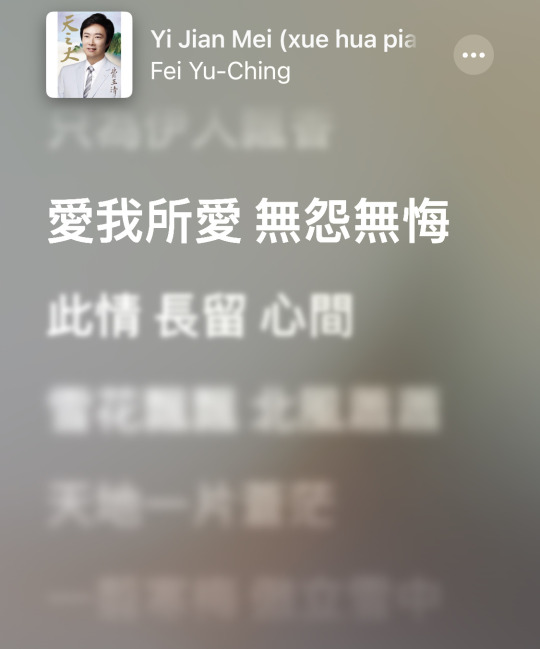
真情像草原廣闊
zhen qing xiang cao yuan guang kuo
The truth is like the grassland
層層風雨不能阻隔
ceng ceng feng yu bu neng zu ge
The wind and rain can not stop
總有雲開 日出時候
zong you yun kai ri chu shi hou
There’s always a cloud at sunrise.
萬丈陽光照耀你我
wan zhang yang guang zhao yao ni wo
The sun shines on you and me
真情像梅花開過
zhen qing xiang mei hua kai guo
True love is like a plum blossom
冷冷冰雪不能掩沒
瞭解詳情
leng leng bing xue bu neng yan mei
Cold and ice can not cover it
就在最冷 枝頭綻放
jiu zai zui leng zhi tou zhan fang
The branches always bloom during the coldest weather
看見春天走向你我
kan jian chun tian zou xiang ni wo
See the spring towards you and me
雪花飄飄北風嘯嘯
xue hua piao piao bei feng xiao xiao
The snow is fluttering and the north wind is whistling
天地 一片 蒼茫
tian di yi pian cang mang
The world is vast
一剪寒梅 傲立雪中
yi jian han mei ao li xue zhong
A cold plum standing proudly in the snow
只為 伊人 飄香
zhi wei yi ren piao xiang
Only fragrance for the beautiful girl
愛我所愛無怨無悔
ai wo suo ai wu yuan wu hui
Love what I love without regret
此情 長留 心間
ci qing zhang liu xin jian
This love long stays in my heart
0 notes
Text
扮豬吃老虎
to play dumb to take advantage of someone
三十六計,幷戰計 by maybe 檀道濟(tan dao ji). It can be also 假痴不癲(jia chi bu dian), which means pretend to be insane but never be really insane. 三十六計(san si liu ji; 36 taxtics), has 36 strategies for military purpose during old times. Nowadays, it's used for general life situations. The explanation includes historical facts and tactitions, it is taught as commom sense in Asia (chinese character culture boundaries). The most famous one is the 36th one 走爲上計 (zou wei xiang ji). It is the best to avoid a losing fight and run away.
It's from 幷戰計(bing zhan ji), this tactic is used for detruding the enemy. The actual meaning of the 扮豬吃老虎(ban zhu chi lao hu) is a dumb pig eats the old tiger. The most famous story of this is from 三國演義(san gou yan yi), 司馬懿(Sima yi). He was playing dumb until 曹操(Cak cao) died. Finally Sima yi took Caocao's achievement, destroying 曹魏 (cao wei; 213~ 265) then establishing 司馬晉(sima jin; 263 ~ 317).

This phrase come up in episode 22, by Wen kexing. Before it was just suspicious about Zhao jing.

In episode 22, Wen kexing and Zhou zishu both were rather sure about Zhao jing's identity. Also because of 長舌鬼, Wen kexing's identity is revealed 🤭

Zhao jing is highly literate. He also used quite many old poems and quotes in the drama. So what Zhao jing does, it is very well planned. Somehow I see his inferiority whenever he's using old stories. The relation between other parties and Du xie were omitted so not much thing's are revealed.. such shame.
#山河令#word of honor#shan he ling#shl#산하령#배움이 짧아서 모르겠어#ep16#ep 16#ep22#ep 22#삼십육계#三十六計#幷戰計#병전계#假痴不癲#가치부전#멍청한척하되 미치지는 말기#조경이 배운놈이네#한미한 출신이라더니#그래서 더 열심히 공부했나봨ㅋㅋ#광총때문에 삭제된 장면은 얼마나될까#광총망했으면#광총망해라#주자서 도련님 모먼트#wenzhou
6 notes
·
View notes
Text
When you ship Xia Ling and Cao Yan Bing so freaking hard.
5 notes
·
View notes
Note
Could you suggest FCs for each family?
*keep in mind that this rp WILL NOT be resource oriented, so model faceclaims will be suggested (especially for lord leto whose canon counterpart has been explicitly stated as a beautiful young man (not handsome, but beautiful, like an androgynous greek myth figure. with long hair and all that)). *we also do not have a set “age bend” rule in place. we just ask that you be reasonable
HOUSE LETO
DUCHESS LETO (50+) : indira varma, aishwarya rai, madhuri dixit, rani mukerji, sarita choudhury, preity zinta, kajol devgn, sridevi, juhi chawla, mahima chaudhry, manisha koirala, karisma kapoor, raveena tandon, geetanjali rao, deepti naval.
SER LETO (30+) : UNLOCKED AT CH. II
LORD LETO (26-30) : kaya holl, tom ali, saket sharma, aramis knight, akshay kumar, avan jogi, callum stoddart, sebastian de souza, daanisj mahabier.
LADY LETO (23+) : alia bhatt, janhvi kapoor, sara ali khan, shalini pandey, ,anushi chhillar, alaya f, khushi kapoor, keerthy suresh, banita sandhu, aditi rao hydari, kelly gale, neelam gill, ulka gupta.
HOUSE AERDDYD
DUCHESS AERDDYD (45+) : naomi harris, estella daniels, cynthia addai-robinson, carmen ejogo, jill scott, kerry wahington, thandie newton, sophie okonedo, tika sumpter, naomi campbell, catherine lough haggquist, thandie newton, angela bassett.
DUKE AERDDYD (45+) : adrian lester, idris elba, sope dirisu, djimon hounsou, paterson joseph, howard charles, danny sapani, david oyewolo.
SER AERDDYD (30+) : adopted
LADY AERDDYD (27+) : lashana lynch, aalijah hydes, gugu mbatha raw, nathalie emmanuel, susie wokoma, jodie turner smith, laura harrier, pippa bennett-warner, leonie elliott, salem mitchell, grace bol.
LORD AERDDYD (25+) : marcus sivyer, jacob anderson, elliot knight, lucien laviscount, ntonga mwanza, alfie enoch, adonis bosso, torrin verdone.
LORD/LADY AERDDYD (21+) : cara ricketts, assa miriam, tiffany boone, ebonee noel, alexandra metz, crystal clarke, evelyn rain, halle bailey, jemal etnel, odiseas georgiadis, chance perdomo, jacob artist, bruno fabre, masao parris.
HOUSE ANLE
@howlscifer and @herorps are doing GREAT job at making resources for chinese faceclaims. so especially for the the anle children, i suggest going to their blog and giving their packs a look!
DUKE ANLE (46) : wallace huo, li guangjie, qiao zhenyu, hu ge, huang xiaoming, feng shaofeng, liu ye, rick yune, pierre png,
LADY/LORD ANLE (40) : hu caihong, tiffany tang, gao yuan yuan, fan bing bing, ruby lin, juan zi, zhou xun, qin hailu, li bingbing, cynthia koh, cao xiwen, deng sha, jiang xin.
VISCOUNT ANLE (27) : zhang yicong, ding yuxi, fang yilun, tang xiaotian, wang yibo, darren wang, jing boran, chen xiang, gao taiyu, leon li, zhang zhehan, xiao zhan
LORD/LADY ANLE (<27) : li hongyi, lin yi, sheng yinghao, zheng shuang, zhao liying, shao yuwei, li mengmeng, song weilong, gulnazar (nazha), wu qian, song jiyang, wu jinyan, xu kai, angela baby, li qin, chen xinyu, dilraba dilmurat, guli nazha.
LADY ANLE (20+) : zhao lusi, ju jingyi, zhou zixin, jiang yiyi, bai lu, guan xiaotong, jiang zixin, lin yun, meng ziyi, ren min, song zuer, sun yi, xiao yan, zhang xueying, zhang yaqin, yang chaoyue.
HOUSE BAVLENKA
GRAND DUKE BAVLENKA (55) : benjamin bratt, emilio rivera, benicio del toro, andy garcia, esai morales, demian bichir.
DUCHESS BAVLENKA (30-35) : maría mercedes coroy, nathalie kelley, ishbel bautista, emily rios, barbara de regil, maría gabriela de faría.
LORD BAVLENKA (25+) : jorge antonio guerrero, peter gadiot, diego boneta, tommy martinez, chay suede, jessey stevens, vadhir derbez, yago muñoz, jorge lopez.
LADY BAVLENKA (18+) : adopted
HEAD BUTLER (50+) : staff member
*these are just suggestion so feel free to apply as anyone you like as long as they fit !
#if anyone brings srid.evi im going to cry....pls.....#i can talk for 30 minutes non stop about lord leto
17 notes
·
View notes
Text
I have opinions.
If we’re all being honest, there’s virtually no chance that the next Dynasty Warriors game will actually include anything after the fall of Shu (Zhong Hui’s revolt being a bit of an exception.) Since the story is often framed as the plucky heroes of Shu fighting the evil armies of Wei, most fiction doesn’t really care about the outcome after Shu has been defeated. But this war had another 15 years in the tank. What would that look like, and how might it be adapted for a DW style game?
As always, I have opinions.
You can read my articles about the conflict between Jin and Wu on my other blog. I planned to write more, but then the ZZTJ translations went on lockdown so we’ll stop with Wu’s end.
The Two Emperors: https://classicalamateur.wordpress.com/2019/11/09/the-two-emperors/
The War Against the North: https://classicalamateur.wordpress.com/2019/11/24/war-against-the-north/
The End of the Era: https://classicalamateur.wordpress.com/2020/02/08/end-of-the-era/
BATTLES
These are the major battles between Wu and Jin (and certain rebels), the ones that would be needed to finish the story of the era.
The Siege of Yong’an (264)
By spring of 264, Wei conquered Shu and Zhong Hui’s rebellion had been put down. The Sima had no more opposition within Wei, but Wu was still a danger. The Wu emperor Sun Xiu knew that if Wei (later Jin) controlled all of Shu, Wu’s chances of survival grew dramatically slimmer. So he sent an army under Bu Xie (later reinforced by Lu Kang) to capture whatever he could in Shu.
Yong’an controlled the passage between Jing and Yi. Although most of the military was led away from the city during Shu’s downfall, a small garrison remained under the command of a minor local officer named Luo Xian. Having just sworn loyalty to Wei he refused to let the Wu army pass. For six months he held off Bu Xie and Lu Kang. Eventually, Hu Lie led a flanking attack against Xiling (Bu Xie’s headquarters), which forced the Wu army to retreat. With the victory at Yong’an, Wei’s control over all of Shu was secured.
Over the next few months, things changed dramatically in Wei and Wu. Sun Xiu passed away and, after some complex maneuvers, was replaced by Sun Hao as the new emperor. Sima Zhao passed away, leaving Sima Yan in charge of Wei. He soon dethroned Cao Huan and officially founded the Jin dynasty. For a short time, Sun Hao and Sima Yan made peace with each other, exchanging envoys and making diplomatic overtures.
The Battle of Niutun (266)
While Sun Hao was initially popular with his ministers, this popularity faded quickly due to his cruelty, superstition, and other undesirable traits. In winter of 266, a mountain bandit named Shi Dan kidnapped Sun Hao’s brother Sun Qian and marched on Jianye, intending to enthrone Sun Qian as the new emperor. At the time, Sun Hao had relocated the capital to Wuchang and left Zhuge Ding and Ding Gu in charge of Jianye. These two intercepted Shi Dan at Niutun, where they defeated him. This was a minor rebellion but an excellent way to introduce Zhuge Jing and show resentment building against Sun Hao.
Sun Hao’s Campaign (268)
Although Sun Hao and Sima Yan conducted diplomatic relations with each other, this peace broke apart in winter of 268, when Sun Hao launched a large invasion of Jin. He sent Shi Ji (son of Zhu Ran) to attack Jiangxia (likely the city of Shiyang) while Chancellor of the Righ Wan Yu marched on Xiangyang. Meanwhile, Ding Feng was sent to besiege Hefei while Sun Hao personally led an army against Shouchun. Sima Wang was sent to reinforce Hu Lie in Jing while Shi Bao commanded the defenses in Yang along with Sima Jun.
Sima Wang and Hu Lie defeated Wan Yu easily enough, forcing Shi Ji’s retreat as well. Ding Feng met with no success at Hefei and conducted relatively peaceful negotiations with Shi Bao to arrange a border instead. Having won in Jing, Sima Wang then marched east to intercept Sun Hao, who was quickly forced to retreat.
This was a significant campaign. It was broad in scope and was the last significant offensive Wu ever initiated.
The Jiao War (268-271)
During this time, a second war raged in the far south. This conflict began in 264, when Wu’s executor of Jianzhi was killed by a subordinate who defected to Wei. The neighboring commanderies of Jiuzhen and Ji’nan also submitted to Wei. Sima Zhao appointed the former Shu official Huo Yi over these territories. Shortly after this Sima Yan and Sun Hao made peace, so Jin (at the time Wei) temporarily held these territories. But when peace broke down, war over the southern regions resumed.
Initially the campaign went poorly for Wu. The commander of Wu’s southern armies, Xiu Ze, was unsuccessful in his attempts to retake the lost territories and was killed in battle at Gucheng late in 268. Jin was able to expand its sphere of control, claiming Yulin as well as a foothold in Hepu. Additional armies were sent under one Xue Xu to reestablish control throughout 269 and 270 but these efforts met with no success.
This changed in 271 when Xue Xu’s subordinate Tao Huang defeated and killed Jin’s commander in Jiuzhen. He then defeated Jin’s largest army in Jiaozhi (probably at Longbian). On the back of this momentum, Tao Huang quickly overcome the remaining Jin forces and secured the submission of local leaders, bringing the south once again under Wu’s control.
The Tufa Rebellion (270)
In 269, Sim Yan created Qin province in the northwest and appointed Hu Lie as its inspector. In 270, a Xianbei leader named Tufa Shujineng led a rebellion against Jin in the province. At the time, all of the northwest was under the command of Sima Liang, an uncle of Sima Yan. He sent Hu Lie to defeat the rebels and ordered a subordinate named Liu Qi to advance as well. However Liu Qi refused to advance, leaving Hu Lie isolated. He was subsequently killed in battle with Shujineng.
Sima Liang was blamed for this failure and stripped of office. Du Yu was appointed as the new inspector to replace Hu Lie but ran into conflict with Sima Liang’s replacement. He was accused of false charges and sent to the capital for trial; meanwhile Sima Liang’s replacement attacked the Tufa and was defeated. Sima Jun replaced him.
The rebellion spread in the next year. The tribes in Beidi (Liang province) joined the Tufa rebellion. The local inspector led an army against them but was defeated and killed at Mount Qing. Meanwhile, a large group of Xiongnu revolted as well, under the leadership of one Liu Meng. He was less successful than the Tufa and suffered a loss in Bing province in winter of 271. In spring of the next year, he was defeated again, this time by Hu Fen - Hu Lie’s brother. One of Liu Meng’s subordinates assassinated him and surrendered. Although the Xianbei remained in revolt, the Xiongnu were temporarily suppressed.
The Battle of Xiling (272)
In autumn of 272, internal conflict in Wu led to one of the last major battles of the period. Bu Chan, who controlled Xiling, defected to Jin. Yang Hu led Jin’s armies to assist him, while Lu Kang commanded Wu’s counter-attack.
Lu Kang quickly moved to surround Bu Chan at his main fortress, but he didn’t lay siege immediately. Instead he built fortifications of his own and prepared to repel the Jin troops. Meanwhile Yang Hu advanced on Jiangling, hoping to force Lu Kang to withdraw to defend it. Lu Kang destroyed a nearby dam to flood the area, slowing Yang Hu’s advance. Meanwhile, Jin’s main force arrived at Xiling but Lu Kang was able to drive them away. Lu Kang was then able to besiege Xiling at will, and he took it quickly. Yang Hu was unable to overcome Jiangling and, with Bu Chan killed and Xiling in Lu Kang’s hands, he retreated.
This was a major victory for Wu, especially when coupled with their success in Jiao and Jin’s losses in the northwest. This was a bleak time for Jin, when it seemed like they suffered losses everywhere despite the strength of their state. However, matters would ultimately turn in their favor. The next several years saw deep political divides in both states, resulting in numerous deaths. However, these events don’t work well in a DW style game and are best discussed elsewhere.
The Battle of Wuwei (276-278)
In 276, Sima Jun was given expanded authority over the northwest to deal with the Tufa revolt. He was assisted by Wen Chu, son of Wen Qin. In 277 they led a series of skirmishes against the Xianbei rebels, earning Jin’s first victories over the Tufa. In 278, however, the Inspector of Liang province led soldiers of his own against the rebels but failed. The local tribes of his army rejected his authority, and he was killed by Tufa Shujineng’s forces in battle at Wuwei. So despite the victories earned by Sima Jun and Wen Chu, the rebellion continued. Tufa Shujineng began plundering Liang, with no one seemingly able to stop him.
In 279, a commander of the palace guards named Ma Long was sent to Liang to do battle with the Tufa. He fought a series of skirmishes against the Xianbei as he marched across Liang, with his superior weaponry generally proving victorious. Ma Long eventually fought his way to Wuwei, where he and Tufa Shujineng fought a climactic final battle. Ma Long was victorious and Shujing was executed. So the rebellion that terrorized the northwest for a decade finally came to an end.
The Fall of Wu (279-280)
In winter of 279, Sima Yan ordered Jin’s armies to conquer Wu. This was a massive campaign best broken into two different phases. First, Jin’s armies secured control over Jing province. This consisted of several armies led by Hu Fen, Du Yu, and one Wang Rong attacking key points in Jing, including Xiakou, Jiangling, and Wuchang. Meanwhile, a man named Wang Jun (who gained fame after defeating a minor rebellion in Yi province) led a large naval force down the Great River, smashing through Wu’s defenses. Many of Wu’s soldiers defected to Jin, and the local commanders were quickly defeated. Only a general named Wu Yan (who gained fame during the battle of Xiling) held out.
In the east, Jin’s armies were led by Sima Zhou and a general named Wang Hun. Sun Hao organized an army under Chancellor Zhang Ti, and the most prominent commander of this force was Zhuge Jing (who defeated the rebels around Jianye in 266 and fought at Hefei with Ding Feng in 268). Despite some initial success, they were defeated by Wang Hun’s subordinate Zhou Jun near Banqiao. Zhang Ti was killed in battle, while Zhuge Jing was able to fight his way free. As Jin’s forces continued to advance on Jianye, Sun Hao sent several more armies against them, but these commanders and soldiers quickly deserted. In the end, Wang Jun sailed into Jianye and Sun Hao surrendered, bringing an end to Wu and reuniting the land.
These eight battles describe the most important campaigns between 264 and 280, the lost years of the story. (Though you could probably get by without Niutun if need be.) While it misses the internal politics that devastated the courts of both states, that sort of thing doesn’t really work very well in Dynasty Warriors anyway.
CHARACTERS
Obviously there are ton of people I’d like to include, but I’m going to focus in on the ones who are a.) absolutely vital to this part of the story and b.) aren’t one-hit wonders (like Ma Long). Those who were important outside of this specific era get precedence.
Jin
Some of the existing Jin characters would still be around for parts of this narrative. Jia Chong and Wen Chu would be present throughout the whole thing, while Wang Yuanji and Sima Zhao would be around for some of the early parts.
Hu Lie. A hero of many battles, particularly prominent during the fighting at Shouchun and the conquest of Shu, as well as several major battles depicted here. It’s frankly strange that he isn’t included already.
Hu Fen. As above, Hu Fen served with distinction in several key battles: In Liaodong, at Didao, at Shouchun, against Liu Meng, and in the conquest of Wu. Again, it’s strange that he’s not already part of the cast.
Du Yu. An in-law of the Sima family, Du Yu was a major court figure. He was also a participant in Shu’s conquest, the fighting against the Tufa, and a primary commander in the conquest of Wu.
Sima Jun. He became an imperial attendant as a child (because he was close in age to Cao Fang) and later held several substantial positions in his family’s regime. He appears to have fought at Lake Chao and against Guanqiu Jian. He definitely fought against Sun Hao in 268 and several campaigns against the Tufa in the northwest.
Sima Wang. A major figure of the family. He held a series of minor appointments in his younger years and probably participated in his family’s operations against Cao Shuang and Guanqiu Jian. He was later transferred to the northwest, where he fought witn Jiang Wei. He helped repel Sun Hao in 268 and passed away not long after that.
Wu
Of the current cast, only Ding Feng would be around for any of this. And while I can’t begin to list every Wu character I’d want to add, the ones most important for this tale would be as follows.
Lu Kang. One of Wu’s last successful commanders. He served with distinction in several battles, especially at Shouchun. He was a major figure in all of Wu’s wars and politics during this last era, and his connection to existing characters like Lu Xun makes him an easy choice. (Plus, one time in ROT3K VIII he and I fought the whole world together and won. That’s my boy.)
Zhuge Jing. In some ways the lone survivor. Son of Zhuge Dan, he was a significant general in Wu, fighting in most of their important conflicts at the end.
Bu Chan. It’s a little hard to pin down his exact career, but we can assume he was involved in all the fighting in Jing. His defection triggered a conflict that was too significant to ignore.
Wu Yan. A hero at Xiling and one of the last Wu commanders left standing. The Wu narrative needs someone like him to help bring it to a close.
Tao Huang. The conqueror of the south. Although he doesn’t have much relevance outside of that, this is Dynasty Warriors so it’s easy enough to justify him in battles in the north before that, and to have him show up in the final campaign. Another survivor of Wu’s end; with Zhuge Jing and Wu Yan he gives the faction enough people to finish the tale.
There are tons of others I could mention but these are the ones I consider the strongest and most important candidates. With these characters and these battles, you can tell the final chapter of the story and actually bring it to a close in a way that makes sense.
17 notes
·
View notes
Text
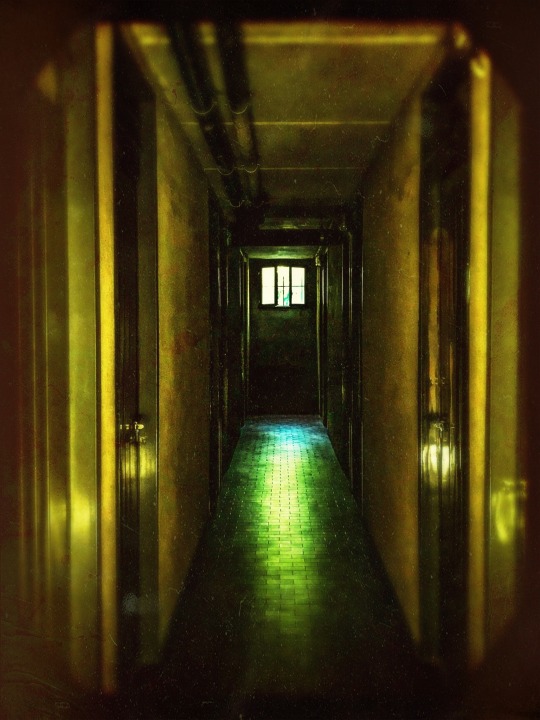
• Covid-19 • 182 giorni di Apocalisse, tra morti misteriose, sparizioni, e report dei servizi segreti
La vita ai tempi della pandemia - Mondo, Zona Rossa / giorno 116
Ieri, 30 giugno 2020, sono stati 6 mesi da quel fatale 30 dicembre 2019, che ha cambiato il mondo che conoscevamo. Per sempre.
In questi 6 mesi, un virus letale, di origine (s)conosciuta, con epicentro la megalopoli cinese di Wuhan, da 11 milioni di abitanti, fuoriesce dal BioLab-4 di Wuhan (un super laboratorio di massima sicurezza che gestisce i patogeni più letali al mondo) e comincia silenziosamente ad infettare ed uccidere migliaia di persone in tutto il pianeta.
Questo virus mortale, provoca polmoniti interstiziali bilaterali mai viste prima: alle radiografie, i polmoni appaiono a “vetro smerigliato” e, all’auscultazione, i polmoni producono un caratteristico rumore di “carta accartocciata”.
Ma soprattutto, questo virus letale, nato già “perfetto” e che non ha bisogno di replicarsi per mutare e perfezionarsi (com’è accaduto invece per il similare virus della Sars, questo sì, un virus di origine naturale, che ha fatto “solo” 800 morti nel mondo in 32 paesi, in 4 mesi totali di epidemia, da novembre 2002 a marzo 2003, contro i 500.000 morti, in 188 paesi, di Covid-19, in soli 6 mesi, e non è ancora finita), uccide con un meccanismo mai visto prima in altri virus: provoca una reazione immunitaria abnorme, che fa “impazzire” il sistema immunitario umano, il quale comincia a produrre centinaia di coaguli nel sangue, che, una volta arrivati agli organi vitali, portano alla morte.
Il mondo si blinda in un lockdown globale.
Le economie precipitano.
Disoccupazione e povertà arrivano a livelli esponenziali, intaccando anche il ceto medio.
Cominciano rivolte e guerriglie in diversi paesi, soprattutto negli Stati Uniti, dove l’epidemia è fuori controllo.
I suicidi aumentano, sia tra il personale sanitario, che tra le persone comuni.
Gli ospedali di tutto il globo collassano.
Finiscono i respiratori.
Non ci sono farmaci nè vaccini contro il virus.
I malati vengono messi per terra, nei corridoi, o all’esterno, nelle tende di biocontenimento.
Gli obitori, i cimiteri, i forni crematori di tutto il pianeta, non bastano più.
Si scavano fosse comuni per seppellire i corpi infetti.
Decine e decine di camion militari trasportano decine e decine di bare da cremare.
Centinaia di persone, in tutto il mondo, vengono trovate morte, da sole, a casa, senza nessuna assistenza. Uccise dal virus.
Poi, dopo 3 mesi di buio e di lotta per la sopravvivenza individuale, qualcosa nella genetica del virus muta, e s’indebolisce: la carica virale non è più in grado di uccidere le cellule umane. I sintomi diventano lievi, e le terapie intensive si svuotano, insieme ai Covid Hospital, prima in Cina, poi in Italia, poi in Europa, ovvero, nei paesi che la pandemia ha colpito per primi. Il resto del mondo, invece, è ancora alle prese con le fasi più feroci e mortali della malattia.
Attualmente, in Cina, Italia ed Europa, ci sono ancora alcuni importanti focolai, ma sono tutti di persone asintomatiche, che non richiedono, nella maggior parte dei casi, ricovero ospedaliero, ma solo quarantena e assistenza domiciliare.
E mentre imperversa ovunque questo caos apocalittico, in questi 6 mesi di puro terrore, ci sono state anche misteriose “scomparse”, morti, uccisioni di ricercatori, blogger, giornalisti, che hanno cercato di dire la verità sul virus, e cioè che proviene dal BioLab-4 di Wuhan, da cui è fuoriuscito per un errore umano, e dove è stato geneticamente modificato con innesti di altri virus, per scopi, molto probabilmente militari, e molto meno probabilmente per semplice “studio”.
In un dossier di 15 pagine, redatto da “Five Eyes” (una super intelligence internazionale, basata su un’alleanza tra i servizi segreti dei maggiori 5 paesi di lingua anglofona: Australia, Canada, Nuova Zelanda, Regno Unito e Stati Uniti), la Cina viene accusata di aver nascosto o distrutto prove sull'origine della diffusione del virus, di aver negato inizialmente la trasmissibilità da uomo a uomo, e di aver bloccato l'accesso delle organizzazioni internazionali a Wuhan, epicentro del contagio, e ai campioni del virus inizialmente disponibili. Nel fascicolo, inoltre, si fa riferimento all'esistenza di prove in grado di dimostrare che il virus sia stato generato nei laboratori dell'istituto di virologia di Wuhan, a pochi passi dal mercato del pesce, prove che Pechino ha intenzionalmente cercato di insabbiare.
In particolare, il report di Five Eyes muove 3 pesanti accuse contro la Cina:
1) la prima, riguarda la scomparsa di molte persone, tra cui la ricercatrice dell'istituto di Wuhan, Huang Yan Ling, da molti ritenuta la ‘paziente zero’ di Covid-19, misteriosamente scomparsa. Pechino non ha fornito spiegazioni in merito, e addirittura il profilo della ricercatrice è stato rimosso dal sito dell'Istituto di ricerca di Wuhan.
Anche altre persone sono scomparse, come i ricercatori cinesi Botao Xiao e Lei Xiao (di cui mi sono già occupata tempo fa), che per primi avevano parlato della possibilità che il virus fosse uscito dal laboratorio di Wuhan, dove, già in passato, c’erano stati altri incidenti di ricercatori infettatisi coi virus dei pipistrelli.
Ma la scomparsa più eclatante, riguarda Shi Zenghli (anche di lei ho già ampiamente parlato), la virologa numero 1 della Cina, soprannominata “Batwoman”, per i suoi studi sui coronavirus dei pipistrelli, di cui è la massima esperta a livello mondiale.
Di Shi Zenghli non si hanno più notizie da aprile 2020.
Il 2 gennaio 2020, terminando la mappatura della sequenza del genoma di Covid-19, Shi scopre che è identico per il 96% a quello di un virus studiato nel suo laboratorio.
Lo stesso 2 gennaio, la direttrice dell’istituto in cui si trova il BioLab-4 di Wuhan, diretto da Shi, invia una mail, rivolta a tutta la comunità scientifica, in cui vieta la divulgazione dei risultati delle ricerche sul virus Sars-Cov-2.
Ma Shi non rispetta questo monito, e il 23 gennaio 2020, pubblica una relazione scientifica, ripresa poi da “Nature”, in cui spiega di aver scoperto l’altissima contagiosità di questo virus il 14 gennaio (6 giorni prima che il regime di Pechino lo riveli al mondo).
L’11 marzo 2020, Shi rilascia inoltre un’intervista (per lei fatale), nonostante le fosse stato vietato, alla rivista “Scientific American”, in cui dichiara i suoi dubbi sul presunto passaggio animale-uomo fatto dal virus e avvenuto in una zona urbana, il mercato del pesce di Wuhan, anziché negli ambienti tropicali che lei studia da 16 anni, e a cui ha dedicato la sua vita e la sua carriera.
Ammette poi che <<il virus potrebbe essere arrivato dal nostro laboratorio. Questo è stato un vero peso, non ho chiuso occhio per giorni>>.
Più avanti, nell’intervista, dice anche di aver abbandonato gli studi su Covid-19, senza peró spiegarne i motivi.
Queste sono state le ultime dichiarazioni di Shi, dopodiché, di lei si sono perse le tracce.
Molte voci dicono che sia fuggita dalla Cina e abbia trovato rifugio a Parigi con la sua famiglia, e sia pronta a consegnare un dossier sulla fuga dal laboratorio di Wuhan del Covid-19.
Ma anche altre persone sono state colpite dalle misure restrittive del regime, come diversi medici che hanno cercato di dare l’allarme sulla diffusione dell’epidemia, e sono tutti stati incarcerati o scomparsi, oppure come l'uomo d'affari Fang Bin, l'avvocato Chen Qiushi e l'ex reporter televisivo statale Li Zehua, anche loro tutti incarcerati, per aver diffuso il proprio pensiero in merito alla gestione governativa dell’emergenza.
Infine, c’è un’altra scomparsa misteriosa: l’uccisione, a maggio 2020, di Bing Liu, 37 anni, un professore cinese dell'università di Pittsburgh, che era vicino a "scoperte molto significative" sul Covid-19, e che è stato assassinato nella città della Pennsylvania in un caso di omicidio-suicidio.
Bing Liu, è stato ucciso nella propria abitazione, con numerosi colpi di pistola alla testa, al collo e al torace. L'omicida è il 46enne Hao Gu, anche lui di Pittsburgh, che poi si è ucciso nella sua auto, parcheggiata poco distante. La polizia ritiene che i due si conoscessero e che il movente non fosse una rapina. Il delitto è avvenuto sul patio della casa mentre la moglie della vittima era fuori.
L'università di Pittsburgh ha poi spiegato che Bing Liu aveva un dottorato in chimica ed era "un eccezionale e prolifico ricercatore", e che era "vicino a realizzare scoperte molto significative per la comprensione dei meccanismi cellulari che sottintendono all'infezione da SARS-CoV-2 e alle successive complicazioni".
Bing Liu è stato ucciso perché stava per trovare le prove di una manipolazione genetica di Covid-19? Certamente sì.
2) La seconda accusa mossa da Five Eyes a Pechino, riguarda la possibilità di una fuoriuscita del virus dai laboratori di Wuhan, nei quali l'equipe della dottoressa Shi Zhengli ha per anni condotto esperimenti sui Coronavirus nei pipistrelli, manipolando un campione del virus corrispondente al 96% con il Covid-19.
3) La terza, e ultima accusa, riguarda la continua attività di insabbiamento delle prove da parte di Pechino, attraverso la censura delle notizie sul virus dal web, già dal mese di dicembre 2019, e la deliberata rimozione dai motori di ricerca di key words riguardanti il coronavirus, le sue similitudini con la Sars, il mercato del pesce e il laboratorio di Wuhan.
Il mondo punta (a ragione) il dito contro la Cina, ma tutte le colpe del regime di Pechino nell’aver taciuto per mesi (gli inizi dell’epidemia sembra risalgano addirittura ad agosto 2019) il diffondersi del virus, alla fine non avranno conseguenze, perche nessuna nazione, per quanto ricca e potente, puó risarcire il mondo intero per un suo errore, anche se fatale e letale, e soprattutto perché, rivalersi sulla Cina, significherebbe arrivare alla terza guerra mondiale, e alla fine dell’umanità.
E già adesso, l’umanità si trova in bilico sull’orlo del baratro.
#pandemia covid 19#covid 19#covidquarantine#covid-19#alchimilla#katia celestini#italian photographers#artists on tumblr#photographers on tumblr#original photographers#quarantine#lockdown#coronavirus sars cov 2#sars cov 2#virus
5 notes
·
View notes
Text
The Campaign of Liu Ji Part 3 (Final!)

A continuation from this post, and the conclusion to this most recent play-through of Romance of the Three Kingdoms 14. When it came to beginning the inevitable battle with Cao Cao, I was a little hesitant at first. It seemed like it was going to take a while and I wasn’t sure how interesting it would be to play. But I soldiered on. It was a bit of a stalemate for a while, with neither of us gaining or losing any ground, but the computer had a tendency to over-extend itself and leave places vulnerable. And I already had more cities and troops, so it was really only a matter of time. I spent one entire evening just shuffling around officers and moving troops and resources from place-to-place. If I hadn’t been writing out this loose narrative for my campaign, I doubt I’d have been motivated to finish it. I’ll be interested to see how this game changes when the power up kit is eventually released, as at the moment its a little bare-bones, and most turns are spent rewarding officers to maintain their loyalty and accepting mundane suggestions from advisors which increase agriculture or whatever in a town by ten points. I feel like the narrative I wrote out for this campaign would have been much more interesting to read if I had been more strict with myself about roleplaying the position whilst playing, in terms of (for example) who I could or couldn’t hire, of sometimes losing territory to my enemies when it made sense, and so on. But as it stands, I don’t think this game has enough tools to keep things interesting and varied. Nevertheless, Cao Cao has been backed into a corner and the conflict approaches its end. The fate of the famous three sworn brothers revealed. If you want to know more about the destiny of one Liu Ji, styled Jingyu, read on!
Cao Cao, along with his advisors Guo Jia and Xun Yu, had developed an idea early on of separating the three brothers Liu Bei, Guan Yu, and Zhang Fei—in order to prevent them from causing any trouble. Liu Bei would be based in Xuchang with the Emperor, Zhang Fei was to hold the frontlines against Ma Teng in the northwest, and Guan Yu had been involved in conflict in the northeast against Gongsun Zan. Liu Bei desired greatly to travel south to join the forces of Liu Ji, but he was effectively a prisoner, and did not want to be parted from his brothers. If Guan Yu or Zhang Fei shirked their duties in the north, it would have been very costly for Liu Bei and his family. In the years after the conflict with those forces came to an end, Cao Cao turned his attention southward to Liu Ji—with the three brothers still separated across the realm.
To prevent Liu Ji from gaining access to Chang’an, Cao Cao turned his forces toward Liu Ji’s position at Hangzhong, whilst simultaneously advancing on Liu Ji’s bases in Xinye, Shouchun, and in Jianye. It was easily the largest conflict in recent history. Liu Ji was unable to maintain control of Hanzhong, which was a key base for moving on Chang’an. Once the area had been subdued by Cao Cao’s forces, Zhang Fei was placed in charge of the unit now stationed at Hanzhong—presumably to intimidate Liu Ji and prevent him from advancing. But when Cao Cao’s forces came to join Zhang Fei for a full-scale invasion of the riverlands, Zhang Fei refused to open the doors to the city they had occupied. Not long after, he was somehow joined by his sworn brother Liu Bei, who had escaped captivity in Xuchang during the ongoing conflicts with Liu Ji and had snuck his way over to Hanzhong with the help of some supporters in Cao Cao’s territory. As Cao Cao directed his forces to advance upon Zhang Fei at Hanzhong, Liu Ji sent his own generals to support that same position. It transpired that Fa Zheng had also been in contact with Zhang Fei over the past few months—which had made this surprising turn of events possible. Guan Yu was yet to be seen, but the conflict between Cao Cao and Liu Ji had begun in earnest.
Taishi Ci, Ling Tong, Huang Zhong, Wei Yan and Ma Chao were his most capable generals, and had become the pillar of his military force—his five Tiger Generals. Zhuge Liang was promoted to Prime Minister, and Lu Xun became the Director General. He was not lacking for intelligent advisors, but they did not often agree. Even so, Liu Ji enjoyed weighing the value of the various suggestions presented to him, and actively encouraged lively and good-spirited debate within his halls. Spiteful, personal attacks and underhanded comments were not tolerated. This contributed towards a sense of camaraderie among the intelligent officers of his force, and ensured they were motivated and focused on the task at hand, working hard to develop their ideas and consider alternatives which might be suggested by their interlocutors.
Recognizing the value of maintaining a hold on Hanzhong, and furious at the betrayal of Zhang Fei and Liu Bei, Cao Cao dedicated himself to securing the area once more. He sent their sworn brother, Guan Yu—who had become so indebted to Cao Cao through his service over the years, and who had been poisoned with lies about the behavior of his sworn brothers. Zhang Fei met Guan Yu on the field, enraged that Guan Yu hadn’t already come to join his brothers, and was yet a peon under Cao Cao. The two clashed in an intense duel, rending heaven and earth.
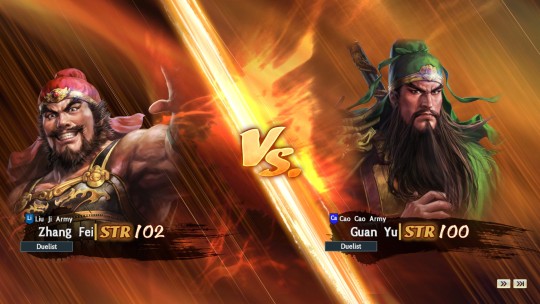
Pushing one another to their limits in a battle which had both armies enraptured, more than two-hundred bouts had been concluded. Liu Bei yelled at both brothers to lower their arms and remember their oath. He got between the two in the midst of their duel without a weapon of his own, which took them by surprise. Liu Bei was accidentally struck in the head and bled from his ears. He died soon after. In their distress, both Zhang Fei and Guan Yu took their own lives. Soldiers on both sides attempted to prevent them from doing so, but to no avail. In the chaos that followed, Cao Cao regained control of Hanzhong for a short time. But being spread thin, and fearing Xuchang would fall, was unable to hold it for long.
Across the realm, Cao Cao’s bases had begun to fall to Liu Ji—Cao Mai’s navy was overrun off the shore of Guangling by He Qi and Lu Dai, enabling Liu Ji to build upon his forces on the northern shores of the Changjiang. Sensing that Cao Cao had acted too late to mount a meaningful opposition against Liu Ji, Zhang He turned on Cao Cao’s force at Wan Castle, joining with Liu Ji and providing them access to the castle. Xuchang was now within reach, and efforts were being made by Cao Cao to relocate the capital, and thereby the Emperor, north of the Huanghe to Ye, the Capital of Ji Province.
Xu Province had already been captured by Liu Ji, and the escape route to Ji Province had been cut off. Xuchang swiftly fell. Cao Cao barely escaped with his life, but he was unable to bring the Emperor with him. The carriage of the Emperor was surrounded by Huang Zhong and Wei Yan before it could reach the river. Liu Ji himself led a force through Hu Lao Gate to capture Luo Yang, with Taishi Ci, Ling Cao, and Lu Dai—some of his longest serving generals. Luo Yang was re-established as the capital city and the Emperor was encouraged to resume his role, but he vehemently opposed the idea, exhausted by playing his role as puppet Emperor. He threatened to kill himself if Liu Ji did not assume the throne and continue the Han Dynasty as an imperial ancestor. Hesitant at first, it was only at the insistence of his advisors that Liu Ji capitulated and accepted. He was named Emperor Da of Yang.
Cao Cao had become very ill, often bedridden by severe migraines. Sima Yi took care of most of his duties, which largely involved re-structuring and re-organizing their forces north of the Huanghe. Of his most capable generals, only Xu Huang and Xiahou Yuan were with him in Ye, but both were now over fifty years of age. Xiahou Dun was stationed in Liang Province, cut off from the rest of Cao Cao’s force.
A small force led by Ma Chao slowly encroached upon Xiahou Dun in Liang Province. Although he fought fiercely, being cut off from Cao Cao’s main force, supplies were lacking. The sparse fields of Liang were not enough to support a standing army, and morale was low. It is said that Xiahou Dun fought until his last breath. Ma Chao was elated to be able to recapture the lands rightfully belonging to his family.
This was now a time for Emperor Da and his forces to rest and recuperate, and focus on domestic affairs. A great deal of discussion centred on moving the capital again to somewhere in the south, but such discussions were tabled until a time when the realm had been completely unified. Liu Ji, now almost 40, had a daughter, but had yet fathered no sons—and this was another active point of discussion.
Many messages were sent to Cao Cao to entreat him to surrender his forces, but he adamantly refused. After a few years, the Emperor commanded that an enormous force cross the Huanghe and capture You, Ji, and Bing. But before the conflict could begin, Cao Cao suddenly passed away in the spring of 221AD. Sima Yi was the architect of the discussions which followed, pledging fealty to the new Han Emperor and surrendering their forces. Gongsun Gong eventually followed suit, and the realm was completely unified by 223AD.

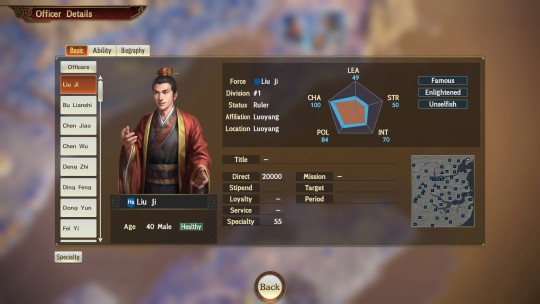
Some years of peace and prosperity followed, but unrest remained surrounding the Imperial lineage. Sima Yi worked diligently at involving his family in Imperial affairs, ingratiating himself to the Emperor—he petitioned to have one of his sons marry the Emperor’s daughter and become Prince. The remaining members of the Sun family sought recognition for having supported the Emperor since His earliest days, and demanded the Emperor’s daughter marry one of their number. Any talk of moving the capital to the southlands was seen as tacit support for the Sun family, and so the conversation stagnated. As tensions flared, and years passed, the princess became aware of her own significance and the power it afforded her. She would sometimes leverage her own life in order to secure her own autonomy. It was announced that she would marry in her own time, on her own terms, as she intended to become the first Empress. Legislation was written to support her claim.
When Emperor Da passed away almost thirty years later, she ascended to the throne. But in the years which followed, internal conflict escalated and the land began to fracture once more, many refusing to accept this new state of affairs, and some making their own claims to the Imperial throne. A new age of conflict had begun.
#rot3k#rot3k 14#Romance of the Three Kingdoms#koei#koei tecmo#three kingdoms#three kingdoms au#three kingdoms alternate history#alternate history#liu ji#cao cao#zhang fei#liu bei#guan yu#sima yi#han dynasty
4 notes
·
View notes
Text
Rise of Sixteen States: 309
Han's armies attack Luoyang. Fail.
28 January 309 – 15 February 310
(Jin's 3rd Year of Yongjia)
(Han's 1st Year of Herui)
(Cheng's 3rd Year of Yanping)
(Liu Yuan)
1st Year of Herui, Spring, 1st Month, xinchou [28 January], New Moon, the Shimmering Deceiver transgressed the Purple Subtlety.
(ZZTJ writes xinchou, while JS writes gengzi, the day before, i.e. 27 January.)
The Prefect Grand Scribe, Xuanyu Xiuzhi, talked to Yuan, saying:
Your Majesty, although a dragon rising and phoenix soaring, soon to accept Heaven's instructions, is however ignoring that Jin is not yet done for, and that the august dwellings are irregular and out of the way. The calamity in the Purple Palace is still chiming for the Jin clan. Do not set out for three years, and [you] will surely vanquish Luoyang.
Puzi is rugged and rough, not [somewhere] it is possible to stay calm for a long time. Pingyang's conditions has a purple vapour, and in addition is Taotang's old capital. [I] desire Your Majesty to above welcome the empyrean apparition, and below be in unison with the terrestrial omen.
Hence he moved the capital to Pingyang.
Summer, 4th Month [26 April – 25 May], Jin's General of Amassed Crossbows of the Left, Zhu Dan, rebelled and ran to Han. He set forth that Luoyang was isolated and weak, and urged Yuan to attack it. Yuan used Dan as Chief-Controller of the Vanguard, and used the Great General who wipes out the Jin, Liu Jing, as Great Chief-Controller, to command troops and attack Liyang. He overcame it. Jin dispatched the General of Chariots and Cavalry, Wang Kan, to strike him. Jing defeated Kan at Yanjin [“Yan Ford”], and drowned more than 30 000 men and women in the He. Yuan heard about, and angrily said:
How will Jing face to see Us again! Moreover, how will the Way of Heaven be able to tolerate it. Those I wish to eliminate is the Sima clan, and that is all. People of no account, what crimes have they!
He demoted Jing to be General who Pacifies the Miscreants.
Yuan used Wang Mi as Palace Attendant, Commander-in-Chief of the Various Army Affairs of Qing, Xu, Yan, Yu, Jing, and Yang Provinces, Great General who Conquers the East, and Shepherd of Qing province. He and the King of Chu, Cong, together attacked Heguan. He used Shi Le as Chief-Controller of the Vanguard. Jin's Inspector of Bing province, Liu Kun, dispatched Army-Protectors Huang Su and Han Shu to aid [Huguan]. Cong defeated Shu at Xijian, and Le defeated Su at Fengtian. Both killed them.
Jin's Grand Tutor, Yue, dispatched the Interior Clerk of Huainan, Wang Kuang, and Generals Shi Rong and Cao Chao to command troops and ward off Cong and others. Kuang crossed the He, he wished to make a long drive and go forward. Rong said:
They ride on to set out from between the defiles. We, though we have a multitude of a million, still is one army alone taking on the foe. [We] should attend to obstructing the rivers to become strong, and so calculate the shape and condition of things, and after plan against them.
Kuang angrily said:
Do you, Lord, wish to dispirit the multitudes!
Rong withdrew and said:
They are good at employing troops. Kuang is in the dark about the conditions of affairs. Today we will surely die.
Kuang and the others went through the Taihang [Mountains]. They encountered Cong, and fought in the vicinity of Changping. Kuang's troops were greatly defeated, and Rong and Chao both died. Cong thereupon routed Zhunliu and Zhangzi, the beheaded and captured numbered 19 000. The Grand Warden of Shangdang, Pang Chun, used Huguan to surrender. Liu Kun used the Chief Commandant Zhang Yi as Nominal Grand Warden of Shangdang, occupying Xiangyuan.
5th Month [24 June – 23 July], from within the Fen river was obtained a jade signet. It was one cun, two fen tall, and four cun square. The inscription said: “Has a New Guardian for It”, perhaps a thing from the times of Wang Mang. Those who presented it following that added “Deep Sea Shines”.Yuan considered it an auspicious omen for himself. There was a great amnesty within his domain, and he changed the year to Herui [“River's Omen”]. He ennobled his sons, Yu as King of Qi, and Long as King of Lu.
Autumn, 8th Month [29 September – 19 October], Yuan instructed his son Cong and Wang Mi to advance to rob Luoyang, with Liu Yao, Zhao Gu, and others as rear support.
(JS100: Emperor Huai dispatched the Commander of the Palace Gentlemen of the North, Pei Xian, to stay at Baima and chastise Wang Mi, the General of Chariots and Cavalry, Wang Kan, to stay at Dongyan and chastise Shi Le, and the General who Pacifies the North, Cao Wu, to stay at Dayang and chastise Liu Yuan. Wu's section General, Peng Mo, was defeated by Liu Cong and was murdered. The multitude armies all withdrew.)
(JS101: The King of Donghai, Yue, dispatched the General who Pacifies the North, Cao Wu, and Generals Song Chou, Peng Mo, and others to resist him. The kingly host was defeated. Cong and others made a long drive to arrive at Yiyang. The Duke of Pingchang, Mo, dispatched Generals Chunyu Ding, Lü Yi, and others from Chang'an to resist him. They fought at Yiyang, and Ding and others were defeated. Cong relied on his continuous victories and did not make preparations. The Grand Warden of Hongnong, Yuan Yan, pretended to surrender. He made a night assault. Cong's army was greatly defeated and then turned back. Yuan in undyed clothes welcomed the host.)
(JS005: 9th Month, bingyin [20 October], Liu Cong besieged Junyi. Dispatched the General who Pacifies the North, Cao Wu, to chastise him.
On dingchou [31 October], the kingly host was defeated. The King of Donghai, Yue, entered to protect the Imperial City. Cong arrived at the Ximing Gate. Yue defended against him, he fought outside of the Xuanyang Gate, and greatly routed him.
The Great General who Conquers the West, the King of Nanyang, Mo, sent the General of Chariots and Cavalry, Wang Kan, and the General who Pacifies the North, Cao Wu, to chastise Liu Cong. The kingly host was defeated, and Kan ran back to the Imperial Capital.)
(JS101: Winter, 10th Month [19 November – 17 December], Yuan again greatly issued out soldiers. He dispatched Cong and Mi together with Liu Yao, Liu Jing, and others to lead 50 000 finest cavalry to rob Luoyang, and sent Huyan Yi to lead the foot soldiers and support them. They defeated the kingly host south of the He”.)
(JS100: Cong crossed the Huanghe. The Emperor dispatched the Colonel Minister of Retainers, Liu Tun, General Song Chou, and others to resist them. They were all unable to oppose him. Mi and Cong arrived at the Imperial City with 10 000 cavalry, and burnt the two Schools.)
On bingchen [9 December], Cong and others arrived at Yiyang. The Imperial court, since the Han troops were newly defeated, had not thought they would arrive again, and were greatly afraid.
On xinyou [14 December], Cong advanced to station at Ximing Gate. Army-Protector Jia Yin, Beigong Chun, and others at night led more than a thousand brave soldiers to push against them. They fought at Daxia Gate, and beheaded Cong's General who Conquers the Miscreants, Huyan Hao. Cong's multitudes thereupon dispersed.
On renxu [15 December], Cong turned around the army and went south, he fortified at the Luo River. Soon after he advanced to station at Xuanyang Gate. Yao stationed at the Shangdong Gate. Mi stationed at the Guangyang Gate. Jing attacked Daxia Gate.
On yichou [18 December], Huyan Yi was killed by his subordinates, and his multitudes dispersed and turned back from Dayang. Yuan directed Cong and others to return with the host. Cong petitioned, claiming that the Jin troops were few and weak, and that they could not consider Yi and Hao's deaths as reasons for returned the host. He firmly requested to stay and attack Luoyang. Yuan allowed it.
On bingyin [19 December], Cong personally prayed at Song Peak. He ordered the General who Pacifies the Jin, Liu Li, the General of the Best of the Army, Huyan Lang, and others to supervise the army that stayed behind. The King of Donghai, Yue, instructed Army Advisor Sun Xun, Generals Qiu Guang and Lou Pou, and others to lead 3 000 sturdy soldiers from his retinue. They went from the Xuanyang gate to strike Lang, and beheaded him. Cong heard about it, and hurried back. Li feared he would be held to account by Cong, he went into the water and died.
Wang Mi spoke to Cong, saying:
Now we have lost the advantage, and Luoyang is still strong. The army baggage is at Shan, and the provisions and food does not sustain several days. Your Highness, it is not as good as turning back with the Dragon-Prancing [General], packaging provisions and sending out soldiers, and composedly be launching later. Your Subordinate Official will be within Yan and Yu, gathered soldiers and storing up grain, submitting to heed the ordered date. Is it not also possible?
(The Dragon-Prancing General was Liu Yao.)
Cong, since he had requested to stay, did not dare to turn back on his own initiative. Xuanyu Xiuzhi again talked to Yuan, saying:
When the year is xinwei, we will obtain Luoyang. Now Jin's vapour is still abundant. If the Great Army does not return home, it will surely be defeated.
(309 was a jisi year. The next xinwei year was in 311)
Yuan hurriedly dispatched the Gentleman of the Yellow Gates, Fu Xun, to summon Cong and others to turn back the host.
11th Month, jiashen [6 January 310], Liu Cong and Liu Yao returned home to Pingyang.
Wang Mi set out from Huanyuan with 2 000 cavalry to rob the various counties of Xiangcheng. The drifting people from Hedong, Pingyang, Hongong, and Shangdang who where in Yingchuan, Xiangcheng, Runan, Nanyang, and Henan numbered several ten thousand families. They were discourteously treated by the long-time residents. They all burnt the cities and towns, killed the Two Thousand Shi and senior functionaries in response to Mi. The beg-for-life leaders Li Yun, Bo Sheng, and others had led a multitude to save the Imperial City. The King of Donghai, Yue, dispatched Bo Sheng and others to pursue and strike Mi. They fought at Xinji, and Mi's host was defeated. Hence he took care of the defences of Puban, and turned back to Pingyang.
12th Month [17 January – 15 February], Yuan used the King of Chenliu, Huanle, as Grand Tutor, the King of Chu, Cong, as Great Minister over the Masses, the King of Jiangdu, Yannian, as Great Minister of Works, and the King of Changle, Yang, as Great Marshal.
He dispatched the Chief Protector Great General, the King of Quyang, Xian, together with the Great General who Conquers the North, Liu Ling, the Great General who Calms the North, Zhao Gu, and the Great General who Pacifies the North, Wang Sang, to go east and station at Neihuang.
Wang Mi petitioned for the Senior Clerk of the Left, Cao Ni, to act as General who Calms the East, to go east to patrol Qing province, and moreover welcome his family and followers. Yuan allowed it.


(Shi Le)
1st Year of Herui, Spring, 3rdMonth [28 March – 25 April], Liu Yuan conferred on Shi Le Great General who Calms the East, Opening Office, and to set up Senior Clerks of Left and Right, Marshal, and Palace Gentleman Assisting in Affairs.
Summer, 4th Month [26 April – 25 May], Le advanced the army to attack Julu and Changshan, and murdered the commanderies' wardens and generals. He captured within Ji province's commanderies and counties more than a hundred fortifications, and his multitudes reached more than 100 000. His clothes and caps, men and things, he assembled to make Junzi Camp.
He pulled in Zhang Bin of Zhao commandery as master of planning and began to appoint an army Board of Merit. He used Diao Ying and Zhang Jing as thighs and arms, Kui An and Kong Chang as claws and teeth, Zhi Xiong, Huyan Mo, Wang Yang, Tao Bao Lu Ming, Wu Yu, and others as generals and leaders. He sent his detached general Zhang Si to lead cavalry and go to the various commanderies and counties north of Bing province's mountains various Hu and Jie, and shed light on peace and peril. The various Hu feared awesome fame, and there were many who adhered.
Autumn, 9th Month [20 October – 18 November], he advanced the army to Changshan, and separately dispatched various generals to attack the various counties of Zhongshan, Boling, and Gaoyang. Those who surrendered were several ten thousand people. Jin's General who Calms the North, Wang Jun, dispatched his general Qi Hong to lead Xianbei, Duan Wuchen and others, more than 100 000 cavalry to chastise Le. He greatly defeated Le at Feilong Mountain, the dead were more than 10 000. Le withdrew to station at Liyang. He separately instructed the various generals to attack the various who had not yet submitted and those who had rebelled, took the surrender of more than thirty fortifications, and set up wardesn and stewards to console them.
Winter, 11th Month [18 December – 16 January], Le advanced to rob Xindu and murdered the Inspector of Ji province and General who Calms the North, Wang Bin. Wang Jun led Ji province. Hence the General of Chariots and Cavalry, Wang Kan, and Commander of the Palace Gentlemen of the North, Pei Xian led a multitude from Luoyang to chastise Le. Le burnt the camp and combined provisions, and turned around the army to resist them. He stayed at Huangniu Rampart.
The Grand Warden of Wei commandery, Liu Ju, used the commandery to surrender to Le. Le made Ju command his rampart multitudes as the left wing of the central army. Le arrived at Liyang. Pei Xian abandoned his army and ran south of the Huai. Wang Kan withdrew to fortify Cangyuan.

(Li Xiong)
4thYear of Yanping, Winter, 10thMonth [19 November – 17 December], Li Xiong's Grand Commandant, Li Li occupied Zitong. His section generals, Hong Qi and Zhang Jingou of Tianshui, Luo Yang of Lüeyang, and others, killed Li and used Zitong to revert to Luo Shang. At the time Yan Shi had left Xiong in favour of Li, and he also was killed. Xiong's Grand Tutor Li Xiang# attacked, but did not overcome. At the time Li Yun and Li Huang both died in battle. They were Xiong's cousins, and were Minister over the Masses and Minister of Works.
12th Month [17 January – 15 February], Qi and others sent off Li's mother and children to Shang. Shang beheaded them, and divided up their household.
Shang dispatched his general Xiang Fen to station at Yifu in Anhan to pressure Li Xiong. Li Xiong led a multitude to attack Fen, but did not overcome him.


4 notes
·
View notes